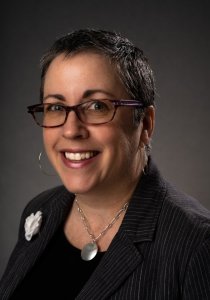It Only Works If We Work Together Link to this section
SFUSD’s mission is “every day, we provide each and every student the quality instruction and equitable support required to thrive in the 21st century.” With that in mind, we are collaborating with leaders across the district to coordinate how their departments and teams will work in tandem with the new student assignment policy to promote educational excellence and equity in SFUSD.
We asked district leaders to answer the following question: “What work is your team already doing - and what new things will it do - to capitalize on the opportunity that our new zone-based student assignment policy creates?”
Here’s what they said:
Arcadio Fokin, Executive Director of Transportation: Link to this section
“The Transportation team is really excited about the move to a new zone-based student assignment system because families will have options in their zones that do not require travel across the city. The shorter travel times will help improve those families’ experiences. The new student assignment system will allow Transportation to streamline services for students and help promote diverse enrollments at schools across the district.
This work is very personal to me. When my family came from Brazil, public transportation was the only way we could get around. We had a good life, and transportation was so key to that. ”
Miguel De Loza, Supervisor, Elementary Multilingual Programs

“Equitable access to language programs is our top priority. In the new zone-based assignment system, families will still have access to all the different types of language programs that they are eligible for. With zones, access could be even easier since families won’t have the potential barriers of extensive research and cross-town travel.
Another promising thing about zones is that as enrollment becomes balanced at our different school sites, language programs in those schools may become more sustainable, as funding is largely based on enrollment numbers.
As the new student assignment system goes into effect, we will continue our current efforts to make sure that language programs are implemented with fidelity across our schools, so that students in every zone have access to a similar language program experience.”
Jean Robertson, Chief of Special Education

“The Special Education department has been meeting frequently with the student assignment team, and we are excited to be part of this change effort!
For students with IEPs, the beauty of the new zone-based assignment system is the opportunity to attend the same schools in the same neighborhoods as their general education peers. The zone system will be designed to minimize the need to travel across the city to receive appropriate services as outlined in students’ IEPs. Predictability will improve for students who attend special day classes as families will know that their child will be assigned to a school closer to their home within their specified zone.
It’s important that this effort is aligned across the district. We will need to work with our district partners, including Human Resources and assistant superintendents, as well as principals, to raise teacher capacity and training so students with IEPs get the experience they require and deserve at every school. The new zone based student assignment plan’s focus on integration and inclusion supports our department’s mission to provide innovative and effective services to those we serve on IEPs.”
Tamitrice Rice-Mitchell, Assistant Superintendent of Elementary Schools, LEAD (Leadership Equity Achievement Design) Cohort 3:

“Assistant Superintendents work closely with school principals to develop their leadership in the areas of instructional support, community outreach, and school identity and culture. As the new zone-based student assignment policy goes into effect, it will be especially important to make sure that every school is offering an enriching and high-quality learning environment so families are excited about their school assignment. To get there, LEAD will redouble its efforts to help school leaders make sure they are offering a unique and attractive option for families.
As schools become more diverse, LEAD will support site leaders as they welcome new and different types of students and families to their school communities, while maintaining the existing school culture and assets that already exist in all of our schools. Fostering integrated and inclusive school communities requires strong leadership, and LEAD will help principals focus on this part of their role.
This effort to provide for each and every student cannot rest on just changing student assignment. It has to include all of us, from Curriculum and Instruction to LEAD to Transportation and beyond to create the high-quality schools that families want and deserve.”
Enikia Ford-Morthel, Deputy Superintendent of Instruction

“As student assignment becomes more coordinated and purposeful, our instructional practices need to do the same. Though there is already so much amazing teaching and learning going on in SFUSD today, we are working on increasing organizational coherence, so those experiences are consistent and systematic across the district. This is especially important to ensure that the educational experience is similarly excellent for students in every zone.
We are moving toward a deeper learning framework -- a research-based vision for instruction -- and will provide teachers and principals with things like grade-level instructional guides, professional development, and exemplary school models to make it a reality. As the zone-based student assignment policy goes into effect, we have to coordinate to make sure that each zone is offering an attractive range of options for families to choose from.
We will organize every aspect of SFUSD, because we know that every single aspect of our system needs to shift in service of students, in service of student learning, in service of supporting student experiences and outcomes, in order for our system and our babies to be successful. We cannot do business as usual in SFUSD, not if we truly want to serve ‘each and every student."
Nicole Priestly, Chief Academic Officer

“As SFUSD transitions to a zone-based student assignment policy, we will continue to provide resources to all schools, including continuing to use early release Wednesdays for professional development. We will also work closely with the Educational Placement Center and Multilingual Pathways Departments to make sure that our language programs are accessible and implemented with fidelity across the city.
We are already working on making sure that students are affirmed and honored at our schools, no matter who they are. We have worked with Dr. Goldie Mohammed to reconfigure the English Language Arts curriculum to be more culturally affirming, and have also replenished school libraries across the district with culturally affirming reading materials.
We view antiracist and culturally affirming pedagogy and curriculum as an integral part of the Curriculum and Instruction equation, so our Wednesday professional development series include these topics. As SFUSD transitions to the new student assignment system, we will continue to work with Human Resources and site leaders to prepare our teachers to provide the affirming and rigorous academic experiences our students deserve.”
Kristin Bijur, Chief Human Resources Officer

“As schools become more diverse under the new student assignment system, our work in HR hiring, supporting, and retaining a diverse and antiracist workforce will be even more important.
We have a recruiter specifically tasked with identifying and hiring talented educators from groups that are underrepresented in our teaching force, including Black, Pacific Islander, and Latinx educators. We also have partnerships with education schools at Stanford, San Francisco State, and NYU that are designed specifically to help SFUSD hire and support teachers from those underrepresented groups.
As families choose schools within zones, Human Resources will coordinate with LEAD and the Curriculum & Instruction department to make sure that we are hiring educators with the specific content and pedagogical expertise to strategically staff the full portfolio of schools each zone will offer. We know that a diverse and expert staff in every school is a critical part of serving ‘each and every student,’ no matter who they are or where they live.”
Emily Mayer, Senior Manager, Budget Office Planning & Analytics

“Because school funding in SFUSD is linked to student enrollment and demographics, we can expect to see school allocations change over time. For example, with Weighted Student Funding, schools receive additional funding per-pupil for every student who is eligible for free & reduced lunch, living in public housing, experiencing homelessness, or in the foster system on top of the funding schools are allocated based on enrollment.
As the new student assignment system changes the demographics of students in SFUSD schools, some schools will gain funds as their school’s need level increases and some schools will experience reductions as their school’s need level decreases. The assignment policy is a phased approach, so budgets will change over the course of several years. Overall enrollment trends and revenue changes could also affect school site budgets in the future. The Budget Office is committed to distributing funds to schools in a manner that is flexible, equitable, and transparent, and supporting school sites as they navigate these potential changes!”
Conclusion
As you can tell, this work is complex and important. SFUSD takes the change to a zone-based student assignment system very seriously, and we are working across the entire district to make sure we get it right for San Francisco students and their families. Working together, we can achieve our policy goals of diversity, predictability, and proximity, and support the district’s mission to support “each and every student” to thrive!
Keep your eye on this space for future posts about the how and why of our student assignment policy, and be sure to sign up for our newsletter to get regular updates on our progress!
This page was last updated on April 15, 2022

